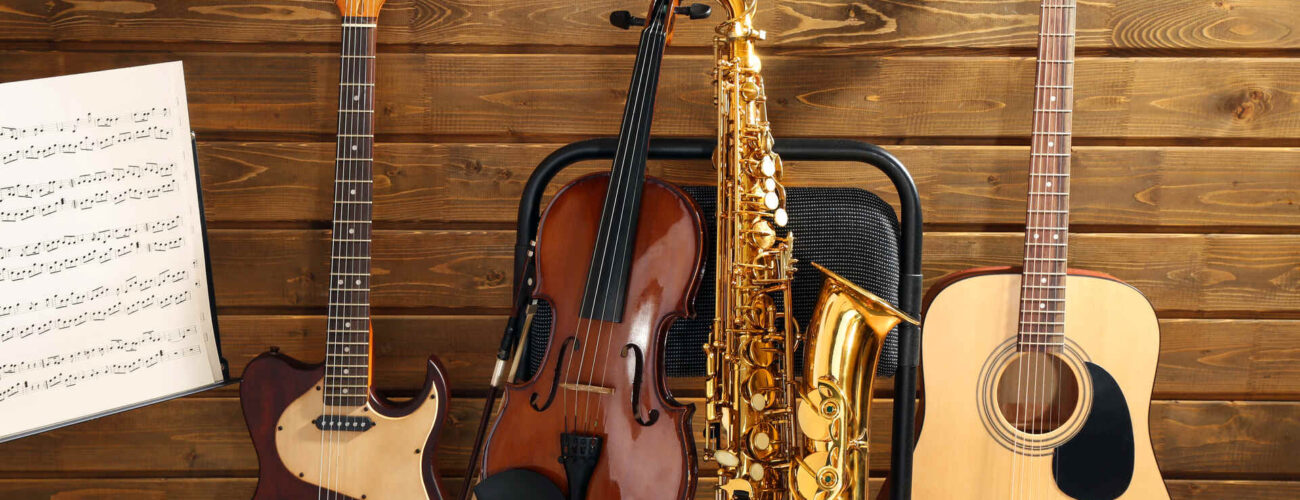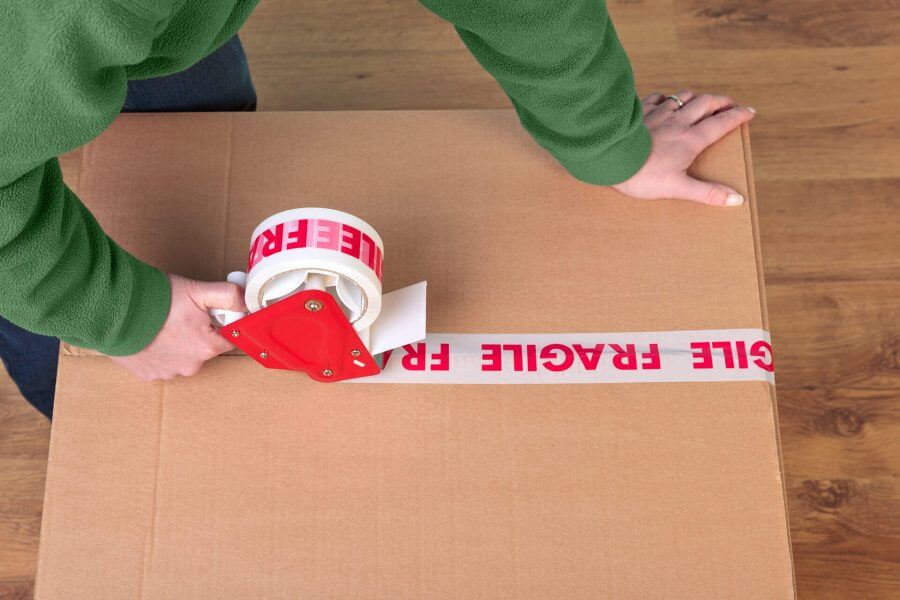

Tips and Tricks for Shipping Musical Instruments
Posted in Moving Tips & Tricks on February 6, 2023
Shipping musical instruments is tricky. From getting the right size box to proper padding and cushioning, it’s essential to take certain precautions. You’ll ensure your item arrives safely while saving money, time, and hassle in the process. Don’t worry – we have all the tricks of the trade and useful tips on tracking packages.
The Importance of Properly Packing and Shipping Musical Instruments
Properly packing and shipping musical instruments is crucial. They’re delicate, expensive pieces of equipment with unique characteristics that must be considered when you move from one place to another.
Ensuring musical instruments are properly packaged and shipped is of utmost importance. Getting good long-distance moving tips can help you learn more. Shipping fragile items without adequate security can cause unpleasant surprises and expensive repairs.
Sturdy packaging can ensure a safe, long journey by protecting against extreme temperatures, humidity, shocks, and vibrations. Careful attention should be given to each instrument to protect them from damage during transportation, which could lead to costly repairs or replacements.
How to Prepare the Instrument for Shipping When Moving Across Country
Moving cross country with a delicate musical instrument is particularly challenging when you transport over long distances, so it is important to be extra careful when you pack. Here are some things to keep in mind when preparing it for transport.
Research Shipping Options and Select the Best One
It’s crucial to use reliable tracking services and insurance coverage to ensure the instrument arrives safely at its final destination. You can always call long-distance movers such as Cross Country Movers to help with packing services.
They also provide transportation, moving insurance, and even storage services. A long-distance moving company like ours is the best choice for ensuring item safety. Make sure you research the best options to pack, ship and deliver your instruments.
Clean and Detach Any Accessories From the Instrument
A great moving hack is to clean and detach any accessories from instruments before you pack them. This can help protect against damage caused by dirt, dust, or other particles that may become trapped in the instrument’s crevices during storage or transport. Additionally, detaching any accessories can reduce the weight of the shipment and make it easier to handle.
Pack It for Protection During Transport
To properly pack and ship a musical instrument, you must choose a suitable container or box. It should be strong enough to protect the instrument while still allowing it easy access for inspection or transit. Research how many boxes you need for your other items.
Once you have a box, line it with a protective material such as bubble wrap, packing paper, or foam. Placing blankets or towels around the instrument can also help to protect it during transit.
In addition to organizing proper packing, there are also a few other things to consider when transporting musical instruments. These include taking measures to prevent the effects of extreme temperatures and humidity and ensuring that it’s shipped in its original case or container if possible.
Secure and Label the Shipment
In addition to using protective materials, it is important to securely seal the box with strong tapes, such as duct tape or packaging tape. Sealing seams, corners, and openings is essential for keeping moisture out and providing extra reinforcement. Once you pack the box, it should be labeled appropriately with a “Fragile” sticker or other warnings to alert handlers that the contents are delicate.

How to Ship Musical Instruments – Transport Considerations
Transporting instruments can be tricky due to the regulations and insurance coverage requirements that must be followed. Shippers need to understand these rules to ensure their stuff is safe and secure and arrives at the desired destination intact.
Understand Regulations and Insurance Coverage
To ensure the safety of your instrument, you should purchase insurance coverage. This is especially important if you’re sending a valuable item or one with sentimental value. Most companies offer some form of insurance coverage, but be sure to read through the fine print and learn what is covered.
You should also research specific regulations and requirements for instrument transport in your area. These can vary from place to place, so it’s best to double-check with local authorities beforehand.
Additionally, many carriers have strict policies when it comes to delivering musical instruments. Read through any applicable terms and conditions before selecting a provider and an insurance policy.
Choose the Right Shipping Carrier and Method
If you pack multiple instruments or larger items such as grand pianos or harps, cross-country moving services may be your best transport option. These carriers provide auto transport and door-to-door pickup and delivery of large items. They also protect your items in storage and provide specialized packaging materials for sensitive items.
Provide Detailed and Accurate Information on the Shipment
When an instrument is shipped across the country, it’s crucial that you, the sender, provide detailed and accurate information on the shipment. Here’s some important information to deliver to cross-country movers:
- Weight and dimensions of the instrument; this will help determine the cost to ship and whether or not additional packing materials are necessary,
- A detailed description, including any special features that may be important for delivery and handling,
- Information on the recipient, with full contact information for both parties. If you’re relocating, the destination address will be enough, including your phone number and email address,
- Any transport instructions or special notes since you may have special handling requirements due to the instrument’s delicate nature.
Without this, there is a higher risk of delays or miscommunication. Providing details ensures the instrument arrives safely and on time.

Steps for Safely Packing Musical Instruments When Moving Cross Country
You can take certain steps to ensure your instruments arrive at their destination in the same condition they left in. From choosing the right materials and affordable moving supplies to properly securing them in boxes or cases, here’s the information about packing instruments for a stress-free move.
Assess the Instrument
It is important to assess the instrument’s condition before packing it up. Inspect all of its parts, including knobs, strings, and any other delicate components that could be damaged during transport. If you ship your belongings with professional movers, they’ll likely do the same.
Gather the Right Packing Materials
Depending on the type of instrument, you may need to gather packing materials such as bubble wrap, packing paper, and Styrofoam peanuts to protect the instrument well during its journey. For particularly fragile ones, you should consider investing in a hard case for additional protection.
Place It in a Sturdy Case or Box
Using sturdy boxes and cases for transporting delicate instruments is a great way to ensure that they make it safely to their destination without being damaged. It is important to use high-quality materials when choosing a box or case, as they need to be able to withstand the wear and tear of long-distance travel.
Use Extra Padding for Protection
Additionally, you should consider adding extra padding and cushioning materials to protect the instruments during transport. It’s also crucial to properly label the containers to know what’s inside and keep track of your valuable instrument throughout its journey. Following these steps will help ensure safe and successful delivery without moving mistakes.
Specially Wrap the Delicate Details
When packing your instrument, ensure all of its delicate pieces are wrapped securely and that it is packed snugly in its box or case. Also, make sure to label the box and include instructions for any special handling needs. If you’re forgetful, add moving labels to your moving to-do list.
Here’s a video on how to particularly care for a guitar when packing it for shipping. This method can be applied to most instruments.
FAQ
What Are the Delivery Options Available for Musical Instruments?
There are various options available depending on the size and weight of the instrument and the destination. Generally, most instruments can be shipped via affordable long-distance movers like Cross Country Movers, which encompass all types of shipments.
For larger instruments that require additional protection and support, freight services can be used. Additionally, some vendors may offer specialized transport and loading options for large items like pianos that provide extra protection and tracking features.
How Do I Choose the Right Carrier for My Musical Instrument?
To make sure you’re making the best choice, here are some important factors to consider when deciding on a carrier:
- Delivery speed – when transporting expensive or delicate instruments, fast delivery is always important. Look for carriers offering next-day or two-day delivery options,
- Insurance and tracking – ensure the carrier you choose offers insurance for lost or damaged items so that if something does happen to your instrument, you’ll be covered.
- Price – shipping costs can add up quickly when you pack large items, so find a carrier that offers competitive pricing while still providing quality service and insurance,
- Reputation – read reviews and ask around to get an idea of how reliable and trustworthy a carrier is. Doing research will help you determine which has the best track record.
What Are the Shipping Regulations and Insurance Coverage for Musical Instruments?
Check with the carrier you plan on using if they accept musical instruments. Some companies may not accept certain items due to size, weight, or other reasons.
Many carriers require musical instruments to be packed and labeled in a certain way to reduce the risk of damage during transport. For instance, some carriers suggest stringed instruments be placed in a hard case, while wind instruments should be covered with bubble wrap or foam padding.
Additionally, most carriers will require you to obtain insurance coverage for your instrument before shipping it. Insurance coverage can vary depending on the carrier but can protect against any damages that may occur during transit.
How Do I Ensure Safe Delivery of My Musical Instrument?
Look for carriers that offer tracking services so you can check in on the progress of your instruments during transit. When shipping a musical instrument, be sure to organize all documents, such as receipts, invoices, and tracking information, to be handy in case your shipment is delayed or lost during transit.
How Can I Monitor the Status of My Instrument Shipment?
A great way to keep track of your shipment is by using a tracking app on your mobile device. These apps provide live updates on the status of your package and can even notify you when it has been delivered. This technology can help you stay in control of the shipment process and ensure your instruments arrive safely at their desired destination.
Another option for monitoring your shipment is to contact the carrier directly. They can provide detailed information about the progress of your package, including its estimated arrival date and potential delays or problems.
What Should I Do if My Musical Instrument Arrives Damaged After Shipping?
If your musical instrument arrives damaged after delivery, the issue must be taken care of on time. First and foremost, you should retain all shipping records, including the tracking number, order receipt, and other associated paperwork.
You should also take pictures of the damage and contact the shipping company to make a claim; to ensure the damage happened during transport, take photos of the item before it ships. Additionally, contact the retailer or manufacturer for assistance with repairing or replacing the damaged item.
You may be able to receive a refund or replacement, depending on your specific situation. If a repair is necessary, most manufacturers have authorized service centers that can help with repairs and replacements.
When Moving Your Instruments Across the Country, Ensure You Have All the Necessary Help
Moving your instruments across the country doesn’t have to be difficult. As long as you have the necessary help, you can rest assured your every instrument arrives at its destination safely and on time. You’ll only worry about how much to tip movers and your moving essentials.
Cross Country Movers is a trusted moving company with years of experience helping people move their belongings – including delicate items like musical instruments. We would be more than happy to help you with your upcoming move. Give us a call today for a free quote.





